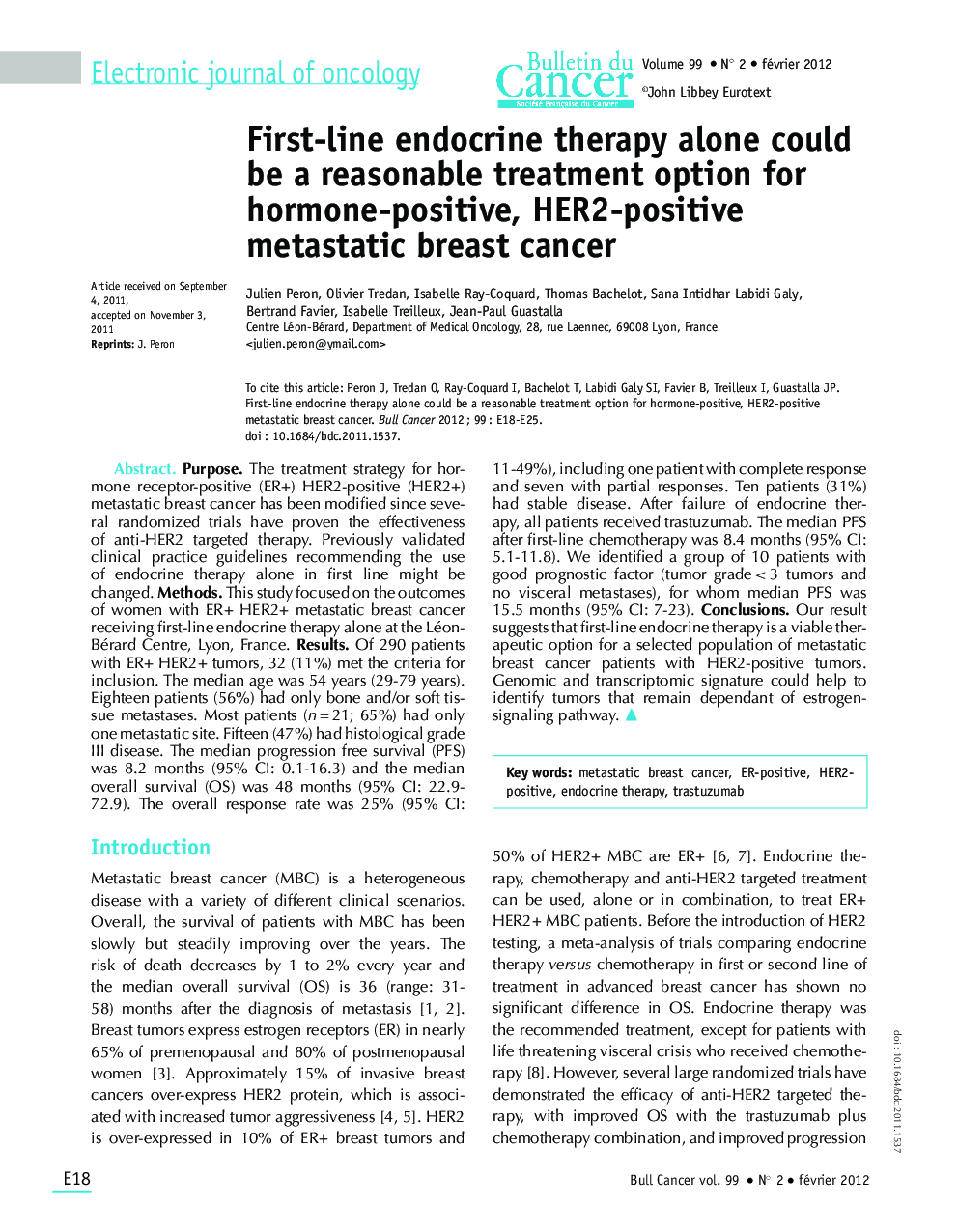| Article ID | Journal | Published Year | Pages | File Type |
|---|---|---|---|---|
| 3979092 | Bulletin du Cancer | 2012 | 8 Pages |
Abstract
Purpose. The treatment strategy for hormone receptor-positive (ER+) HER2-positive (HER2+) metastatic breast cancer has been modified since several randomized trials have proven the effectiveness of anti-HER2 targeted therapy. Previously validated clinical practice guidelines recommending the use of endocrine therapy alone in first line might be changed. Methods. This study focused on the outcomes of women with ER+ HER2+ metastatic breast cancer receiving first-line endocrine therapy alone at the Léon-Bérard Centre, Lyon, France. Results. Of 290Â patients with ER+ HER2+ tumors, 32 (11%) met the criteria for inclusion. The median age was 54Â years (29-79Â years). Eighteen patients (56%) had only bone and/or soft tissue metastases. Most patients (n = 21; 65%) had only one metastatic site. Fifteen (47%) had histological grade III disease. The median progression free survival (PFS) was 8.2Â months (95%Â CI: 0.1-16.3) and the median overall survival (OS) was 48Â months (95%Â CI: 22.9-72.9). The overall response rate was 25% (95%Â CI: 11-49%), including one patient with complete response and seven with partial responses. Ten patients (31%) had stable disease. After failure of endocrine therapy, all patients received trastuzumab. The median PFS after first-line chemotherapy was 8.4Â months (95%Â CI: 5.1-11.8). We identified a group of 10Â patients with good prognostic factor (tumor grade < 3 tumors and no visceral metastases), for whom median PFS was 15.5Â months (95%Â CI: 7-23). Conclusions. Our result suggests that first-line endocrine therapy is a viable therapeutic option for a selected population of metastatic breast cancer patients with HER2-positive tumors. Genomic and transcriptomic signature could help to identify tumors that remain dependant of estrogen-signaling pathway.
Related Topics
Health Sciences
Medicine and Dentistry
Oncology
Authors
Julien Peron, Olivier Tredan, Isabelle Ray-Coquard, Thomas Bachelot, Sana Intidhar Labidi Galy, Bertrand Favier, Isabelle Treilleux, Jean-Paul Guastalla,
